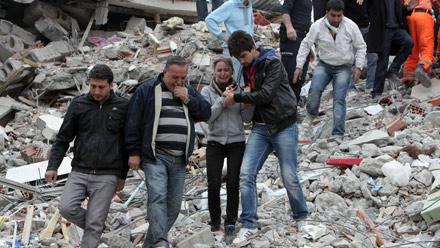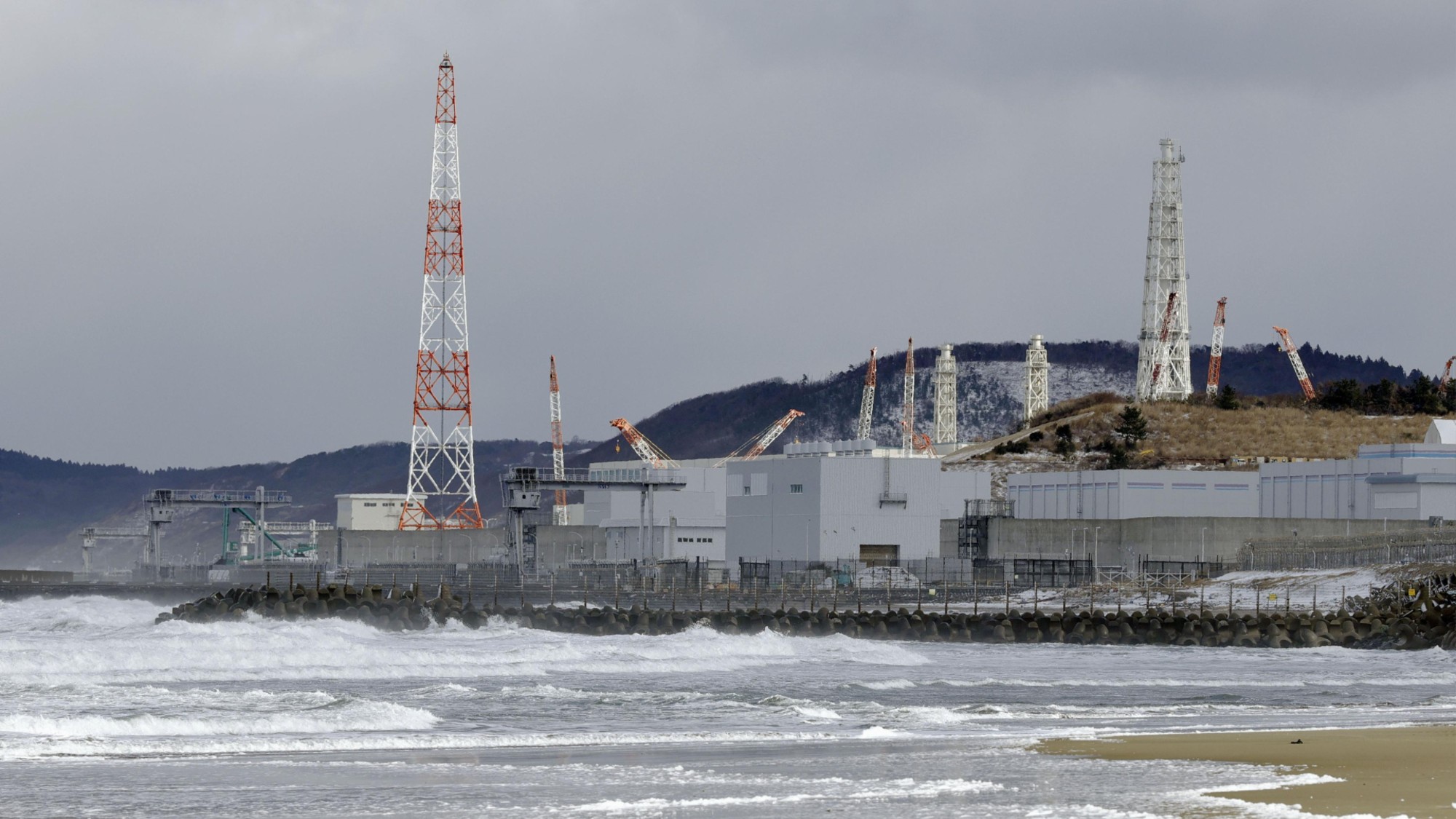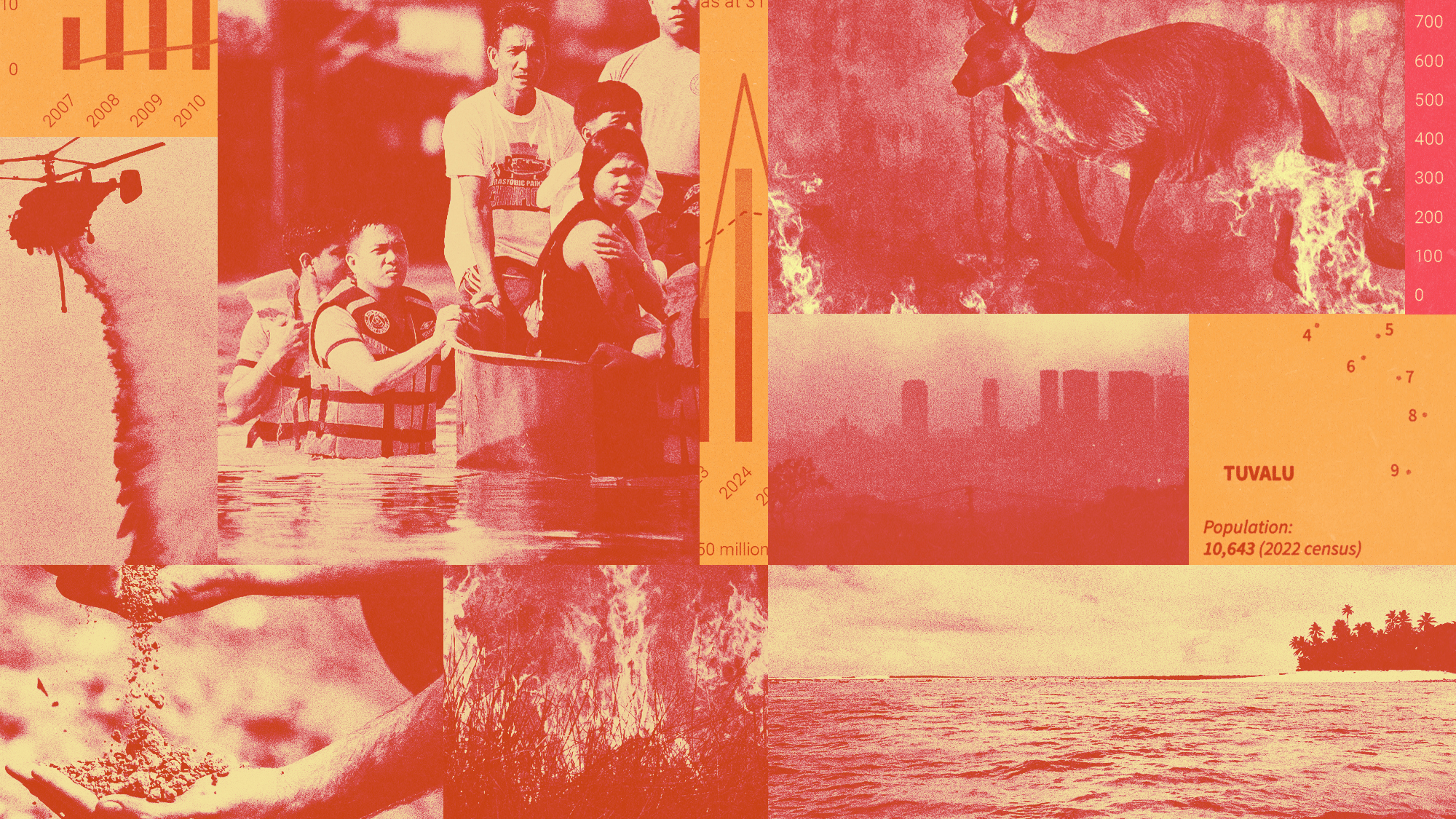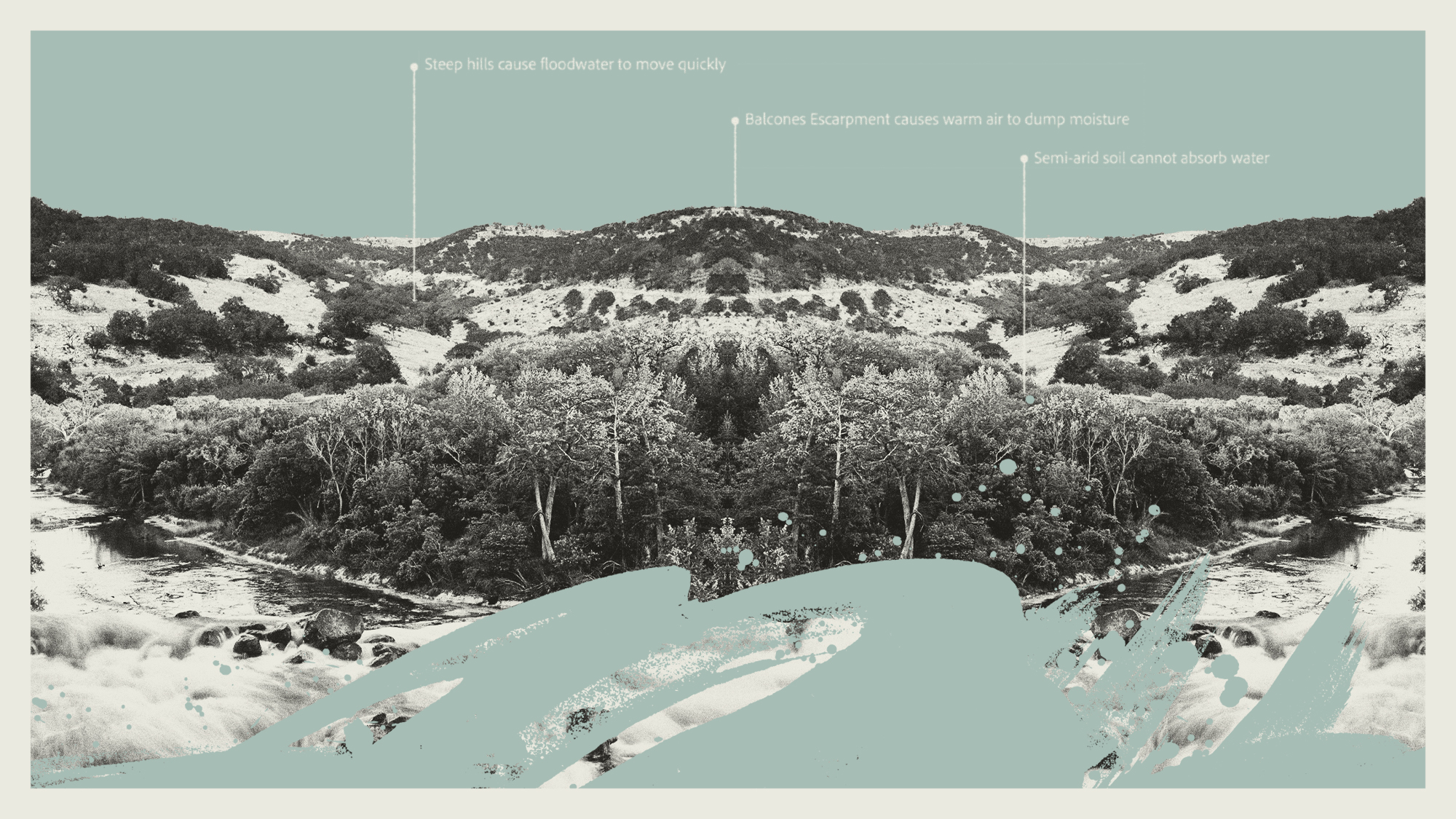Why can’t we predict when earthquakes will occur?
Seismologists hope AI could forecast disasters like those that hit Turkey and Syria

A free daily email with the biggest news stories of the day – and the best features from TheWeek.com
You are now subscribed
Your newsletter sign-up was successful
Two huge earthquakes that shook Turkey and Syria on Monday have raised a simple question: why didn’t anyone know they were coming?
The quakes, with magnitudes of 7.8 and 7.7 respectively, are known to have killed at least 16,000 people and demolished more than 6,600 buildings across southern Turkey and northwestern Syria. Many survivors are now homeless and facing sub-zero temperatures.
In the aftermath of the two earthquakes social media “swarmed with bogus claims that the cataclysm was predicted just days ago”, said NPR.
The Week
Escape your echo chamber. Get the facts behind the news, plus analysis from multiple perspectives.

Sign up for The Week's Free Newsletters
From our morning news briefing to a weekly Good News Newsletter, get the best of The Week delivered directly to your inbox.
From our morning news briefing to a weekly Good News Newsletter, get the best of The Week delivered directly to your inbox.
And while some had said an earthquake might occur, it is merely the usual “scattershot statements and predictions”, Susan Hough, a seismologist at the US Geological Survey, told the US broadcaster. “It’s the stopped clock that’s right twice a day, basically,” she said.
What did the papers say?
Being able to accurately predict where and when an earthquake will occur “has eluded earth scientists for years”, said The Washington Post. This despite the fact that “the stakes couldn’t be higher”.
Over roughly the past two decades, earthquakes have caused nearly 750,000 deaths globally, which accounts for “more half of all deaths related to natural disasters”, according to the World Health Organization.
The causes of earthquakes are well understood. They occur “when massive blocks of the earth’s crust suddenly move past each other,” explained Vox. “As [tectonic] plates move, pressure builds up across their boundaries, while friction holds them in place.”
A free daily email with the biggest news stories of the day – and the best features from TheWeek.com
Scientists “understand these kinds of earthquakes well”, the site said. However, earthquakes can also occur within tectonic plates, as pressure along their edges cause deformations in the middle. These risks are harder to detect and measure.”
Some scientists have begun investigating whether climate change could have any bearing on earthquakes. According to Nasa geophysicist Paul Lundgren, the “main way this could happen is if climate change caused surface water to add to the stress on a fault”, The Jerusalem Post said. This is known as “microseismicity” – tiny earthquakes that humans can’t feel.
The Post also cites how Nasa researcher Donald Argus found that “droughts can alter the size of mountains due to a loss of water”. Such changes could, in theory, “result in a change of stress on faults” and lead to possible earthquakes.
“The key to all of this is ‘in theory,’ though,” the Post said. “Because earthquakes are so unpredictable, it is extremely difficult to say for sure how much of a role climate change could play.”
What next?
Regardless of where they occur, earthquakes are “nearly impossible” to predict, given the “sheer complexity of analysing the entirety of the planet’s crust”, said The Washington Post.
Some hope that new technologies such as artificial intelligence (AI) will help make predictions more accurate, and that smartphones can act as early-warning systems and alert people that they need to move to a place of safety when an earthquake is imminent.
According to Scientific American “advances in technology – including improved machine-learning algorithms and supercomputers as well as the ability to store and work with vastly greater amounts of data” are giving scientists “a new edge” in forecasting earthquakes.
Paul Johnson, a geophysicist at Los Alamos National Laboratory, told the publication: “You’re viewed as a nutcase if you say you think you’re going to make progress on predicting earthquakes.” But the latest advances in AI might mean “experts could predict quakes months or even years ahead of time”, Johnson said.
Last year, Science Daily reported on an experiment by Johnson using an AI approach borrowed from natural-language processing, similar to the language translation and autofill functions on a smartphone. It has shown promise in being able to predict “future fault friction” – or earthquakes – in a laboratory setting.
However, Johnson added, “the next challenge is whether we can do this on Earth to predict future fault displacement”.
Arion McNicoll is a freelance writer at The Week Digital and was previously the UK website’s editor. He has also held senior editorial roles at CNN, The Times and The Sunday Times. Along with his writing work, he co-hosts “Today in History with The Retrospectors”, Rethink Audio’s flagship daily podcast, and is a regular panellist (and occasional stand-in host) on “The Week Unwrapped”. He is also a judge for The Publisher Podcast Awards.
-
 Secured vs. unsecured loans: how do they differ and which is better?
Secured vs. unsecured loans: how do they differ and which is better?the explainer They are distinguished by the level of risk and the inclusion of collateral
-
 ‘States that set ambitious climate targets are already feeling the tension’
‘States that set ambitious climate targets are already feeling the tension’Instant Opinion Opinion, comment and editorials of the day
-
 Mixing up mixology: The year ahead in cocktail and bar trends
Mixing up mixology: The year ahead in cocktail and bar trendsthe week recommends It’s hojicha vs. matcha, plus a whole lot more
-
 Fifteen years after Fukushima, is Japan right to restart its reactors?
Fifteen years after Fukushima, is Japan right to restart its reactors?Today’s Big Question Balancing safety fears against energy needs
-
 Can the world adapt to climate change?
Can the world adapt to climate change?Today's Big Question As the world gets hotter, COP30 leaders consider resilience efforts
-
 Why are flash floods in Texas so deadly?
Why are flash floods in Texas so deadly?Today's Big Question Over 100 people, including 27 girls at a summer camp, died in recent flooding
-
 What are Trump's plans for the climate?
What are Trump's plans for the climate?Today's big question Trump's America may be a lot less green
-
 Starmer vs the farmers: who will win?
Starmer vs the farmers: who will win?Today's Big Question As farmers and rural groups descend on Westminster to protest at tax changes, parallels have been drawn with the miners' strike 40 years ago
-
 Is Cop29 a 'waste of time'?
Is Cop29 a 'waste of time'?Today's Big Question World leaders stay away as spectre of Donald Trump haunts flagship UN climate summit
-
 Turkey divided over 'massacre law' to combat stray dogs
Turkey divided over 'massacre law' to combat stray dogsUnder the Radar Many argue growing dog population is dangerous and dirty; others see them as historic and 'integral' aspect of Turkish culture
-
 Why is Mexico City running out of water?
Why is Mexico City running out of water?Today's Big Question Climate change and bad planning bring on 'Day Zero'